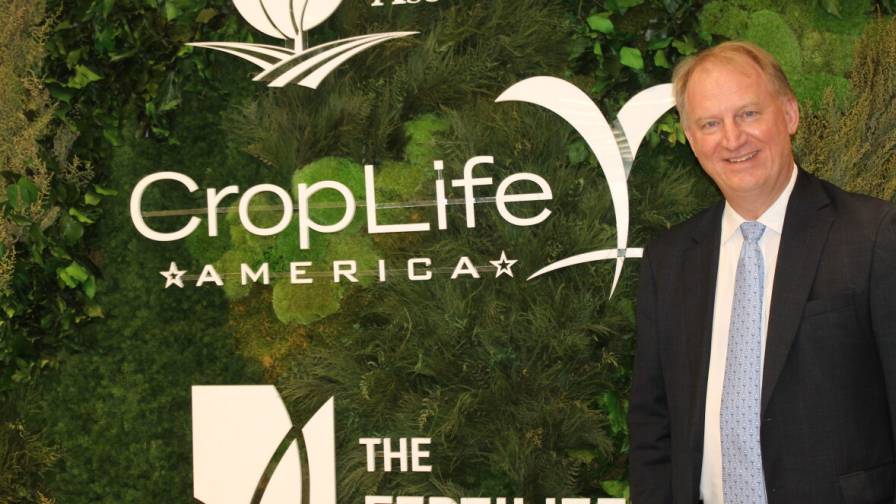Proagrica, Lexagri Partnership Advances Data Coverage For Global Agriculture
Editor’s note: In April, Proagrica and Lexagri, a FoodChain ID company, formed a reference data partnership to provide access in more than 90 countries to internationally standardized product data for crop protection products, bioproducts, seeds, and fertilizers. CropLife recently caught up with Scott Cogdill, Proagrica’s Director of Business Development, to learn more about this development.
CropLife: Where are the current gaps in the global food supply chain in terms of business analytics?
Scott Godgill: One of the biggest concerns is the disconnect in the data itself. For example, a disconnect in data standards — one text or dash, different spacing — can create the need for translation dictionaries. Now you have to manage large translation dictionaries for integration processes.
You may have six platforms, none of which technically speak the same language. This makes it harder to improve visibility or get better analytics. In addition, you now have to create user interfaces (UIs) or workflows to manage the non-standard translations.
Such gaps also increase costs and development time. Furthermore, it adds to more manual steps and more barriers to adoption.
CropLife: What are the ramifications of data disconnect downstream in the supply chain?

Scott Cogdill, Proagrica
SC: Adoption barriers at the field level can impact the ag retailer, the grain aggregator, the food processor and others, because you now have visibility and accuracy issues and minimized value throughout the supply chain. There must be value creation for the grower and other stakeholders in order for them to be part of the visibility and transparency process.
I estimate that anywhere from 50% to 70% of adoption barriers are related to data disconnect. The ability to speak the same language across multiple platforms is a huge step in the right direction to remove these barriers and improve value creation.
CropLife: In April, Proagrica announced a partnership with Lexagri, a FoodChain ID company, to provide reference data coverage for the global ag industry. Why is this significant?
SC: The reference data partnership provides access in over 90 countries to internationally standardized product data for crop protection products, bioproducts, seeds, and fertilizers. Customers can now access one consistent source of data acquisition, which reduces inaccuracies and ultimately provides them with valuable analytics.
The beauty is that it really doesn’t change business practices, technical practices, or anything else for Proagrica or Lexagri. Rather, it expands content competencies for both companies across different global regions.
For example, whether it’s a U.S.-based company looking for data in other regions worldwide or an international customer looking to enter the U.S. market, the customer can leverage both Proagrica and Lexagri’s data depending on the market they’re interested in.
CropLife: How does the partnership improve regulatory compliance?
SC: For regulatory compliance and reporting scenarios, it helps de-risk the process and elevate visibility and transparency. For example, there is a record of when an herbicide was applied, at what rate, which additives, on what machine, and on which date. This type of standardized data is completely transactional and accessible throughout the entire supply chain.
Operational improvements are another area that benefits. Companies that are planning two to three years out, for instance, can unlock data on logistics, inventory, and financials. There’s a real business case for this kind of enhanced reference data.
CropLife: How can data standardization improve traceability with regards to food recalls and food safety?
SC: For some products, particularly leafy greens, certain fruits and tree nuts, and foods that are more direct-to-consumer, there is greater visibility and transparency along the supply chain. This enhances response time and improves accuracy in identifying the product(s) potentially involved in the recall.
CropLife: From the perspective of the global food supply chain, it’s very exciting when new developments emerge that move the needle towards true end-to-end visibility.
SC: I agree. This is one of those steps that unlocks so many processes to create commercial value, logistical and operational value, and transparency along the entire supply chain.
CropLife: Another topic that bears mentioning with regards to the Proagrica and Lexagri partnership, is collaboration.
SC: Yes. The benefits of the partnership allow both Proagrica and Lexagri to expand. While we technically serve a similar market where there is competition, there are also overlaps, and at the end of the day it’s about the betterment of the industry as a whole.
With agriculture and the way it works, there’s never going to be a winner take all approach. It’s not feasible and it just doesn’t work that way. Luckily, the agriculture industry is in a place right now where it’s understood that there’s room for everyone, so let’s speak the same language.




